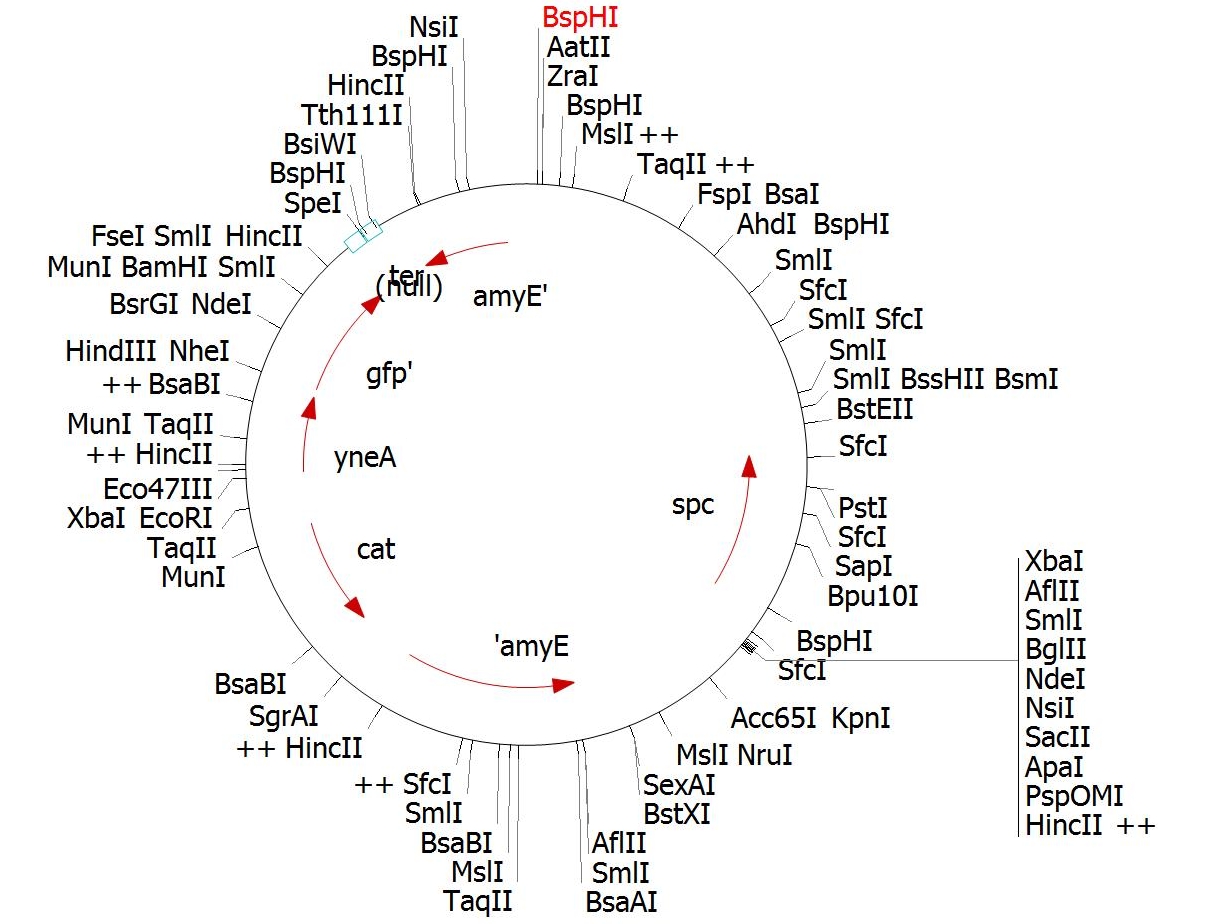Team:Newcastle/2 September 2010
From 2010.igem.org
(Difference between revisions)
Swoodhouse (Talk | contribs) (→Transformation of Bacillius subtilis 168 with pGFP-rrnB containing yneA) |
Swoodhouse (Talk | contribs) (→Materials and Protocol) |
||
| Line 15: | Line 15: | ||
==Materials and Protocol== | ==Materials and Protocol== | ||
Please refer to: [[Team:Newcastle/Transformation of B. subtilis| Transformation of ''Bacillus subtilis'']] | Please refer to: [[Team:Newcastle/Transformation of B. subtilis| Transformation of ''Bacillus subtilis'']] | ||
| + | |||
Note: Overnigth culture of ''B. subtilis 168'' in MM competence medium was done the day before and the iodine test was performed the day after transformation. | Note: Overnigth culture of ''B. subtilis 168'' in MM competence medium was done the day before and the iodine test was performed the day after transformation. | ||
{{Team:Newcastle/footer}} | {{Team:Newcastle/footer}} | ||
Revision as of 14:16, 27 October 2010

| |||||||||||||
| |||||||||||||
Contents |
pH changing for HEPES
We prepared 100mM of HEPES (it is a dibasic compound) at pH 7.0 and sent it for autoclaving. N.B. During autoclaving we loose some volume of the solution.
Transformation of Bacillius subtilis 168 with pGFP-rrnB containing filamentous cell part
Aim
The aim of the experiment is to transform Bacillus subtilis 168 with the plasmid pGFP-rrnB containing our filamentous cell part. After transformation the plasmid will integrate into the chromosome at amyE. This integration removes the ability to break down starch, allowing us to select for our desired construct using the iodine test.
Materials and Protocol
Please refer to: Transformation of Bacillus subtilis
Note: Overnigth culture of B. subtilis 168 in MM competence medium was done the day before and the iodine test was performed the day after transformation.
 
|
 "
"
